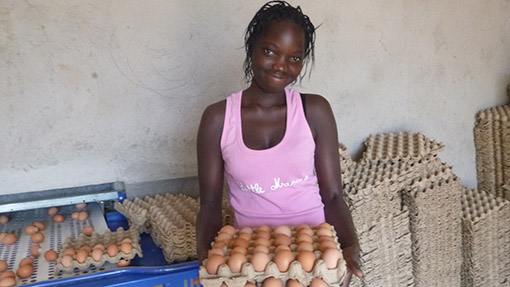Egg projects launched to counter malnutrition

Two new projects have been launched by the International Egg Foundation (IEF) in its first few months, designed to help change people’s lives in Southern Africa.
The IEF is a new global charitable foundation, set up by the International Egg Commission, which helps provide people in developing countries with greater access to eggs as part of its goal to combat malnutrition.
Egg facts for World Egg Day, 10 October 2014
- Eggs can lower the risk of heart disease
- Eggs can reduce the risk of age-related eye diseases such as cataracts and macular degeneration
- Eggs can reduce muscle loss and promote healthy growth and aging
- Eggs contain high-quality protein
- Eggs are rich in amino acids, calcium, sodium, iodine, selenium, choline and vitamins A, B, D & E
In the first project, the IEF is working alongside Heart for Africa, distributing hard-boiled eggs to children in an orphanage in Swaziland, to provide a much-needed source of protein.
The project, named Project Canaan, will also fund and oversee the construction of an egg farm to provide a sustainable source of food to the orphanage and the local community.
The IEF is also working with the UN’s Food and Agriculture Organisation to run a series of egg capacity building seminars in Botswana, Lesotho, Malawi, Mozambique, Zambia and Zimbabwe. The aim is to help egg organisations in these countries increase production and improve distribution.
“As well as being an excellent source of high-quality protein, and containing all the essential vitamins and minerals required for a healthy diet, eggs have two key advantages when it comes to helping to improve diets in developing countries,” explained Julian Madeley, managing director of the IEF. “They are one of the most accessible forms of high-quality protein, and they are a truly sustainable option.
“Sustainability is critical. As well as providing access to food, small-scale egg production schemes have been proven to help people in developing countries achieve financial independence, increase their social standing and encourage a sense of community.”
Figures produced by the FAO show that 870 million people suffer from chronic hunger. Among children, it is estimated that 171 million under five years of age are chronically malnourished.
